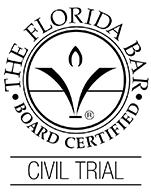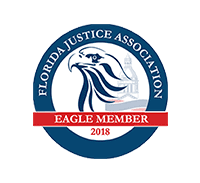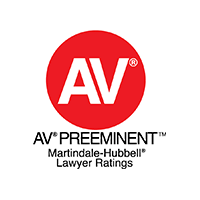Florida’s workers’ compensation system protects employees who sustain a workplace injury or contract an illness while working. Florida law requires most companies with four or more employees to purchase insurance that will cover expenses like lost wages or medical bills.
Unfortunately, there are times when the ultimate tragedy occurs, and employees lose their lives to injuries or illnesses sustained while working. In these cases, workers’ compensation mandates death benefits for the surviving family members. Employers pay these death benefits to families of workers who die within one year of their work injury or were disabled for five consecutive years after the injury before passing away.
What Are Florida’s Workers’ Compensation Death Benefits?
The maximum payout of Florida’s workers’ compensation death benefit is $150,000. This benefit covers the following expenses:
- Payments to the deceased worker’s qualifying dependents
- Reimbursement for funeral costs (up to $7,500)
- Education benefits for the decedent’s spouse
How Are Workers’ Comp Death Benefits Distributed?
Qualifying dependents will receive weekly payments until the maximum $150,000 benefit is paid. The insurer will calculate the payout based on a percentage of the deceased worker’s wages at the time of their death, illness, or disability. The weekly payments can vary based on the decedent’s marital status and how many children they had.
In most cases, the insurer distributes the workers’ comp death benefits in the following manner:
- Payments to a surviving spouse (if the deceased worker had no children): The spouse will receive payments at a rate of 50% of the deceased worker’s salary. For example, if the decedent made $1,000 per week at the time of their death and had no children, the surviving spouse would receive $500 per week until they reached the $150,000 threshold.
- Payment to the surviving spouse with dependents or children: 50% of the deceased worker’s salary plus 16.67% of the weekly salary for each child or dependent. For example, if the deceased worker made $1,000 weekly and had one child, the surviving spouse would receive $666.67 weekly.
- Payment to children or dependents with no surviving spouse: 33.3% of the deceased worker’s weekly wages per dependent or child until they turn 18 (payments may continue until the surviving child or dependent is 22 if they attend college). In cases where the surviving child has a mental or physical disability that prevents them from working, the weekly payments continue until the $150,000 threshold is reached.
- Payment to the deceased’s parents (if they were dependents): 25% of the deceased worker’s weekly wages for as long as the parents are listed as dependents or the $150,000 threshold is reached, whichever comes first.
- Payments to any siblings or grandchildren of the deceased (if they were dependents): 15% of the decedent’s weekly wages to each dependent for as long as they are listed as dependents or until the $150,000 threshold is reached, whichever comes first.
Other Ways to Distribute Workers’ Comp Death Benefits
Keep in mind that the above-listed methods of distributing worker’s comp death benefits are guidelines. If the deceased worker has multiple survivors and dependents, a judge still retains the authority to distribute the payments how they believe to be fair and equitable. However, even in this situation, there may still be points of contention among the surviving spouse, children, or dependents.
What to Do if You Disagree With Benefit Distribution
Surviving family members or the decedent’s spouse frequently disagree with the standard method or the judge’s order to distribute benefits. If you are in a situation where you disagree with either of these methods, you should know that you have options.
Regardless of what side of the conflict you’re on, it may serve your best interests to consult a workers’ compensation attorney with experience in these matters. You may also have questions about whether your loved one’s death was preventable or resulted from negligence. If your loved one suffered a wrongful death, you might qualify for compensation beyond worker’s comp death benefits.
Ask Dave About Your Workers’ Comp Death Benefits
Losing a loved one is always a challenging experience. But don’t let a conflict about the distribution of workers’ comp death benefits exacerbate your family’s pain. Dismuke Law is a Florida personal injury law firm founded by David C. Dismuke—a certified litigation trial lawyer by the Florida Bar Board—that fights for its clients.
Martindale-Hubbell’s legal ratings service recently rated David as a “client champion.” More importantly, he’s here to answer your questions and help you through this difficult time. So please, don’t hesitate to “Ask Dave” any questions about workers’ compensation death benefits. Reach out to us for a confidential, no-cost case review today.


![cftla-member[2]](https://www.1800askdave.com/wp-content/uploads/2022/03/cftla-member2.png)
![cftla-member[3]](https://www.1800askdave.com/wp-content/uploads/2022/03/cftla-member3.png)










